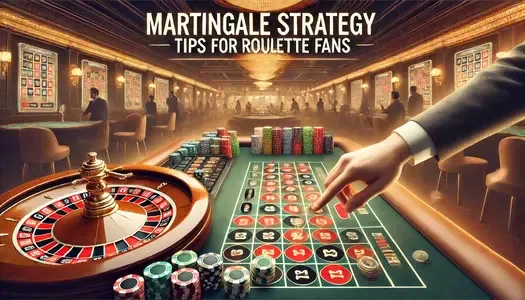Martingale Strategy: Tips for Roulette Fans

Roulette has long fascinated gamblers with its blend of simplicity and excitement. Among various betting strategies, the Martingale system stands out due to its promise of turning losses into gains. But does it really work? In this article, we will explore the intricacies of the Martingale strategy, its pros and cons, and provide some practical recommendations for those looking to use it in their roulette games.
Why Martingale Does Not Work?
The Martingale strategy is straightforward: double your bet after every loss until you win. The idea is that a win will recoup all previous losses and yield a profit equal to the original bet. While this sounds appealing, there are several reasons why the Martingale system is not foolproof.
Firstly, the strategy assumes that a win is inevitable if you keep doubling your bet. However, roulette is a game of chance, and there is no guarantee that a win will occur within a reasonable number of spins. Long losing streaks can and do happen, leading to enormous bets that can exceed table limits or deplete your bankroll.
Secondly, most casinos have table limits to prevent excessive betting. These limits mean that even if you have a large bankroll, you might hit the maximum bet allowed before you win, resulting in a significant loss.
Lastly, the Martingale strategy does not alter the house edge. In European roulette, for example, the house edge remains 2.7%, regardless of your betting system. This means that over time, the casino is statistically favored to win.
Pros and Cons of the Martingale Betting System
Pros:
- Simplicity: The Martingale strategy is easy to understand and implement, making it attractive to novice players.
- Short-term Gains: In the short run, the Martingale can yield profits, especially during a streak of wins or short losing streaks.
- Psychological Comfort: The strategy provides a sense of control and the belief that losses can be recovered.
Cons:
- Risk of Large Losses: The primary drawback is the risk of hitting a long losing streak, which can lead to substantial losses.
- Table Limits: Casino-imposed betting limits can prevent the strategy from working as intended.
- No Impact on House Edge: The Martingale does not reduce the casino’s inherent advantage.
Where to Play the Martingale Betting System?
For those interested in trying the Martingale strategy, selecting the right casino is crucial. Online platforms like 21point casino login offer a variety of roulette games with different table limits and rules. It’s important to choose a game with high betting limits to maximize the effectiveness of the strategy. Additionally, look for casinos that offer bonuses and promotions to extend your playtime.

Recommendations for Martingale Fans
If you are keen on using the Martingale system, consider the following tips to mitigate risks:
- Set a Budget: Determine a fixed amount you are willing to lose and stick to it. The Martingale can quickly drain your funds, so discipline is essential.
- Choose European or French Roulette: These versions have a lower house edge compared to American roulette, slightly improving your odds.
- Start Small: Begin with the minimum bet to allow more room for doubling during losing streaks.
- Be Prepared for Losses: Understand that no strategy guarantees a win. Be mentally prepared for the possibility of significant losses.
- Monitor Table Limits: Always be aware of the table limits to avoid situations where you cannot place the required bet after a series of losses.
The Martingale strategy, while alluring in its simplicity, carries significant risks that can outweigh its potential rewards. Its promise of inevitable wins does not account for the realities of probability, table limits, and the house edge. Roulette players should approach the Martingale with caution, setting strict budgets and being prepared for the possibility of substantial losses. While it can offer short-term thrills and occasional wins, it is not a guaranteed path to success in the long run. For a more balanced and strategic approach to roulette, players should consider combining the Martingale with other betting systems and money management techniques.



